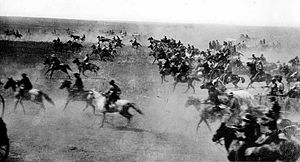I was just getting back to the office yesterday, a Monday morning after a week away — 4 days of business, and 3 relaxing and invigorating days in Yosemite, which is really away — when Dan Levine (@schoolmarketer on Twitter) suggested I read The social media country club on Mark Shaeffer’s businessgrow blog.

Yes, I’m a sucker for contrary points of view. Get a group going, approach consensus, and I want to read the one who’s out in left field. If everybody else is right and this one’s all wrong, so what, I can work that out. But then how often is left field the right place to be?
Mark starts out objecting to rave reviews of Trust Agents, the book by Chris Brogan and Julien Smith. It’s subtitle is “Using the Web to Build Influence, Improve Reputation, and Earn Trust.” I haven’t read it, but I’ve read a lot of favorable comments. Mark, however, says those favorable comments are the result of group think and myth making:
The “thought leaders” of social media marketing are a country club fearful of saying anything negative or controversial about another club member. The real commerce of social media is trading favors and a negative comment breaks the favor chain.
He paints a picture a lot like the fable of the emperor’s new clothes. You can see with this quote, under the general heading of credibility, that at the very least he’s making his position clear:
Take a close look at the credentials (if you can find any) of nearly any leading social media marketing “expert.” How many have ever had a real sales job or have been actually accountable for delivering new value in a marketplace by creating, testing and distributing a product on a meaningful scale? Very few. Yet these are our marketing “gurus?” In a communication channel already dominated by porn-peddling, get-rich-quick nimrods, it simply doesn’t help our collective credibility to have our most visible advocates spouting incredibly naive statements about marketing fundamentals they know little about.
I don’t know that I agree; it seems too harsh to me. I don’t think expertise is measured only by job history, or sales history, or middle management in a big company history, which seems to be laying just under the surface of the blogger bashing. And I wish Mark had said which statements in the book are naive. But it’s certainly a very contrarian point of view. And worth considering. So I’m sharing it here.
(Photo credit: STILLFX/Shutterstock)








You must be logged in to post a comment.